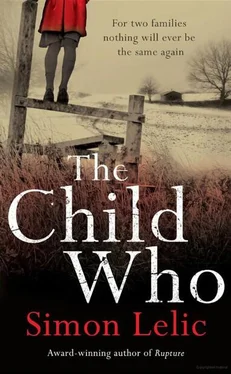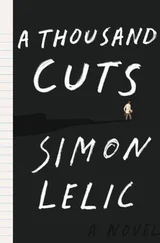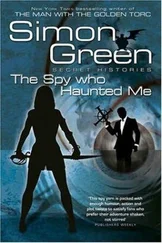When the first drawer is emptied she shuts it and opens the next. She shifts herself onto her knees, taken suddenly by the decisiveness of the task. Her daughter’s waste-paper basket is beside her and she hoists the discarded clippings into it and scrunches them down. From the second drawer she takes out a folder and frowns at the absence of a label. She lifts the flap and, swallowing, shuts it again. Posters, a sheaf of them, with the sketch of the suspect beside a picture of Ellie, A4-size and copied by the ream at Leo’s office. They ran out of lamp posts.
Below the folder is another, again unlabelled and this time empty. The ancient cardboard rips easily and she stuffs the pieces on top of the posters and the newspaper clippings. The bin, already, is halfway full.
The next three folders she cannot bring herself to throw away. They are stuffed with letters, removed from their envelopes to save space. Leo counted them once. Megan cannot remember what figure he reached but she knows it was over two hundred. There were others too, less supportive – vicious, in fact; vindictive – but those are elsewhere. The police asked for them, as she recalls. She does not think they ever gave them back. They were welcome to them, as far as she was concerned, though she would take a certain pleasure in adding them to the kindling pile now.
She starts to read and has to stop. The letters were sent to help but they remind her only of how much they made her hurt.
I simply can’t imagine.
It must be awful.
They’ll find her.
They’ll find him .
You must not give up hope.
Platitudes, the least of them. Lies, the worst. Nothing at the two extremes or between them that made anyone feel any better but the person who wrote them. Not that she was permitted to say as much. Not that she was able to voice, at any stage, what she was truly feeling. Even to Leo, as things turned out, which was almost the hardest part.
Sod it. Sod them . She stuffs the letters into the bin and keeps stuffing until the folders are empty and the bin is almost full.
Her momentum regained, it quickly stalls again. She has reached to open the final drawer but her fingers curl from the handle. She has remembered the part she had forgotten. The part she willed herself to forget. They are inside. They must be. The police have the originals but Leo, being Leo, took copies. So surely they are…
They are. She has opened the drawer the way she would peel away a plaster and there, all alone, is a plastic wallet. Inside, sealed as though in an evidence bag, are the notes.
Again Megan hesitates. She dares herself. More than a dare, it would be a penance. Not like reading the newspaper clippings, which would be detestable mainly because they are so emotionally amiss. The notes, in contrast, would drag her through the way she felt. Even just lifting out the wallet, for instance, reminds her of the weight of her shame. At their failure. At her failure. Because she blamed him for so long but who, really, was in a better position to know the truth? To see past the deceit and the misdirection and to act – act – before it was too late?
I AM WATCHING
YOU WILL BE JUDGED BY YOUR LIES
She can see the first note quite clearly through the plastic and the first note, tame enough compared to what followed, is more than enough. The shame is one thing but she is not prepared to relive the terror. Of the memories. Of her imaginings. Of the sick, morbid fantasies of her masochistic mind. Nor is she prepared yet to reconcile the way she felt with what is to come. Equally terrifying, in a way. Her fresh new start. Her brave new world. Her attempt to rediscover what was lost.
The notes go in the basket. The contents, downstairs, go in a sack. The sack goes in the dustbin and Megan shuts the lid. Before she can stop herself she picks up the telephone. She will call the agent, first, as she promised she would. Go ahead, she will say. Press the button. After that she will call her husband. Not because of Daniel Blake but because she should have called him long ago. She has a confession to make.
It might have been a school:modern, characterless, crouched amid the office blocks and council flats and camouflaged to the colour of slabs. It was mainly the fencing that gave the building away. The security signs, adorning it, were discreet enough until you noticed them but once you did you noticed other things too. Cameras, for instance, trained inside and out. An intercom at the entrance, higher-end even than the system in the city’s courthouse or gaol. And the windows on the building itself appeared barred – discreetly, again, in window-frame white, but still barred.
He was unsure, at the gate, for whom to ask. Leaning through the car window, he offered his name to the expectant static. It seemed to have no effect and he started to explain himself – clumsily, warily, trying to avoid explaining anything – but then the static gave a surge and a buzzer buzzed. The gate, with a jerk, beckoned him in.
This was it, then: the place Leo had read about just that morning in the tabloids. Here were the cushy, five-star surrounds in which Felicity’s killer was being made to feel at home – at the taxpayer’s expense, in case readers needed to be reminded. It was like Butlins, apparently, this facility the newspapers had shied from naming but had spared no adjectives in describing.
There were two empty visitor bays sectioned off in the expanse of tarmac and Leo pulled into the first of them. He gathered his things from the passenger seat and, out of habit, lifted his chin to check his teeth in the rear-view mirror. His eyes caught instead on his cheek. The wound, it felt like, was taking an age to heal. Beneath it, he noticed, there was a patch of stubble he had skirted when shaving. Above it, his eyes were recessed and bloodshot.
His teeth were fine.
A neat, narrow pathway led him through bark-topped flower beds and he arrived at the main entrance. He considered the windowless door and looked about for another intercom. As he was searching, the door buzzed.
Inside, it was a school once more. Leo had expected a lobby: guards, a desk, something to sign. The area, unmanned, was more an entrance hall, with a set of double doors in each wall. The linoleum-tiled floor seemed polished, the walls recently painted. Through one set of doors he saw a figure approaching. The man ducked and gave a cheerful, inefficient wave through the glass, then moved to one side as though to punch a code. The door clicked and then opened and the man bore his smile into the entrance hall.
‘Mr Curtice?’ The man’s smile broadened and he covered the hall in three emphatic strides. ‘I’m Bobby. Hope you found us okay.’
Bobby wore a suit that shone and shoes thirsting for polish. He was younger than Leo but carried with him a certain authority: the confidence and depth of voice of an out-of-work actor. Or a schoolteacher; or social worker. Someone who would inspire suspicion in most adults but devotion, probably, among children.
‘Just about,’ said Leo, accepting Bobby’s enthusiastic hand. ‘Although I came close to missing the turning.’
‘Cool,’ said Bobby, bobbing. ‘That’s kind of the idea.’ His smile had not faltered but somehow it seemed to reassert itself. ‘Come through. This way. Daniel’s waiting for you.’
Leo hesitated and Bobby seemed immediately to realise why.
‘We use the boys’ real names,’ he said. ‘We think it’s important they face up to who they are. To why they’re here.’ He winked and tipped his head. ‘Come through.’
They left the entrance hall through a different set of doors and were immediately confronted by another. Bobby waited until the first set was sealed and then, as he had a moment before, prodded a code into the adjacent keypad. ‘You get used to this,’ he said. He gave one of the doors a hearty shove and held it open. ‘After you.’
Читать дальше












